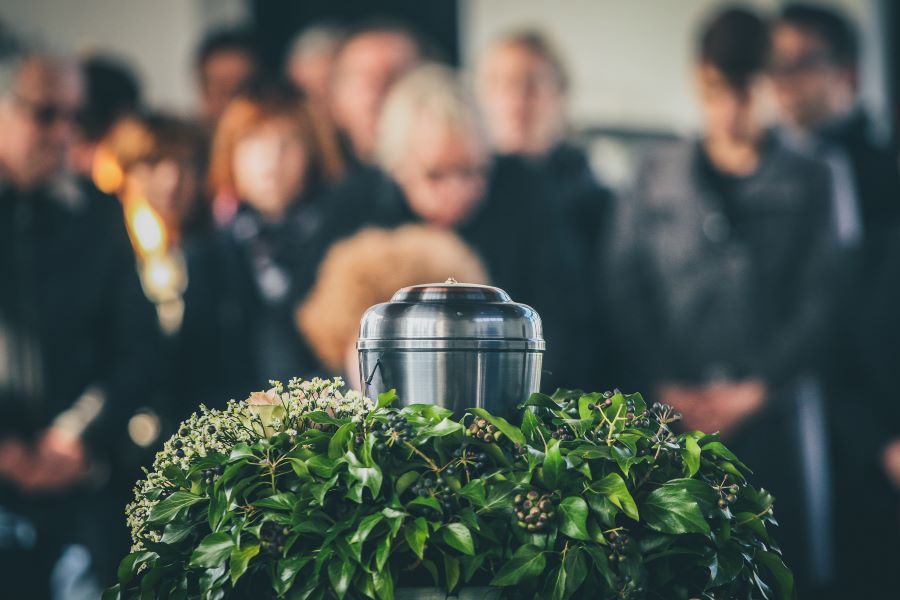Understanding Cremation Services: A Comprehensive Cost Guide
Cremation has become an increasingly popular choice for families across Australia, offering a dignified and often more affordable alternative to traditional burial. However, navigating the costs and options available can feel overwhelming during an already difficult time. This guide breaks down the key factors that influence cremation pricing, helps you understand local options, and provides practical advice on comparing services to make informed decisions that suit your needs and budget.

What Determines Cremation Service Costs?
The cost of cremation services can vary significantly depending on several key factors. At its most basic, a direct cremation—which involves the cremation process without a viewing, ceremony, or additional services—typically represents the most affordable option. However, many families choose to include memorial services, viewings, or other personalized elements that increase the overall expense.
The type of cremation container or casket you select plays a substantial role in pricing. While a simple cardboard or wooden container meets regulatory requirements and keeps costs minimal, families may opt for more decorative caskets if a viewing is planned. Additionally, the crematorium facility itself influences pricing, with metropolitan locations often charging more than regional providers due to higher operational costs.
Other cost determinants include transportation fees for moving the deceased from the place of death to the crematorium, necessary documentation and permits, the choice of urn for storing ashes, and any memorial products such as keepsake jewelry or memorial books. Optional services like death certificate copies, obituary placement, and floral arrangements also contribute to the final bill. Understanding these components helps families budget appropriately and prioritize what matters most to them.
Understanding Local Cremation Pricing Options
Across Australia, cremation pricing varies considerably between states, cities, and individual providers. In major metropolitan areas like Sydney, Melbourne, and Brisbane, direct cremation services typically range from $1,500 to $3,000, while more comprehensive packages including memorial services can extend from $4,000 to $8,000 or more. Regional areas often offer slightly lower rates, though availability of services may be more limited.
Many funeral homes and cremation providers offer tiered packages designed to suit different budgets and preferences. A basic package usually covers essential services including transportation, necessary paperwork, the cremation process itself, and a simple container for the ashes. Mid-range packages might add a memorial service venue, celebrant services, and upgraded urns. Premium packages often include elaborate memorial ceremonies, high-quality caskets for viewing, professional photography, and personalized keepsakes.
It is important to note that cremation pricing structures differ between providers. Some offer all-inclusive pricing with no hidden fees, while others charge separately for each component. Always request a detailed, itemized quote to understand exactly what is included and what additional costs might arise. This transparency allows for accurate comparison between providers and prevents unexpected expenses during an already stressful time.
How to Find and Compare Local Cremation Prices
Finding and comparing cremation services in your area requires a methodical approach to ensure you receive quality service at a fair price. Start by researching local funeral homes and cremation-specific providers through online searches, community recommendations, and professional directories. Many providers now list their pricing online, though some still require direct contact for detailed quotes.
When gathering information, request itemized price lists from at least three different providers. Australian funeral service regulations require providers to supply transparent pricing information, so do not hesitate to ask detailed questions. Compare not just the total cost but the specific services included in each package. Pay attention to what is considered standard versus what incurs additional charges.
Consider factors beyond price alone when making your decision. Provider reputation, staff professionalism, facility quality, and the ability to accommodate specific cultural or religious requirements all matter significantly. Reading online reviews, checking accreditations with industry bodies like the Australian Funeral Directors Association, and speaking directly with providers can help gauge their reliability and compassion. Many families find value in visiting facilities in person when possible to assess the environment and meet staff members.
Real-World Cremation Pricing Comparison
To provide practical context for cremation costs across Australia, the following table compares typical pricing from different types of providers. These figures represent general market rates and can help you understand what to expect when researching local options.
| Service Type | Provider Category | Estimated Cost Range |
|---|---|---|
| Direct Cremation | Online/Budget Provider | $1,500 - $2,200 |
| Direct Cremation | Traditional Funeral Home | $2,000 - $3,500 |
| Cremation with Memorial | Traditional Funeral Home | $4,000 - $6,500 |
| Full Service Cremation | Premium Funeral Home | $6,500 - $10,000+ |
| Cremation Container | Basic Cardboard/Wood | $150 - $400 |
| Cremation Casket | Viewing Quality | $800 - $3,000 |
| Urn | Standard Options | $100 - $500 |
| Urn | Premium/Custom | $500 - $2,000+ |
Prices, rates, or cost estimates mentioned in this article are based on the latest available information but may change over time. Independent research is advised before making financial decisions.
Additional Considerations When Planning Cremation
Beyond the immediate costs, several other considerations deserve attention when planning cremation services. Prepaid cremation plans allow individuals to arrange and pay for their own cremation in advance, locking in current prices and relieving family members of decision-making burdens during grief. However, carefully review contract terms, transferability if you relocate, and what happens if the provider ceases operations.
Cultural and religious requirements may influence both the type of cremation service appropriate and its associated costs. Some faiths have specific guidelines regarding cremation procedures, timing, and memorial practices. Communicating these needs clearly with providers ensures respectful accommodation and prevents misunderstandings.
Environmental considerations are increasingly important to many Australians. Some providers offer eco-friendly options such as biodegradable urns, water cremation (alkaline hydrolysis where available), or carbon-neutral cremation processes. While these alternatives may carry different price points, they align with values around environmental sustainability.
Making Informed Decisions
Navigating cremation services and costs requires balancing practical considerations with emotional needs during a challenging time. Armed with knowledge about pricing factors, local options, and comparison strategies, families can make decisions that honor their loved ones while respecting budget constraints. Remember that the most expensive option is not necessarily the most meaningful—personalization and thoughtfulness matter far more than cost alone.
Take time to ask questions, seek transparent pricing, and choose providers who demonstrate compassion and professionalism. Many families find comfort in involving trusted friends or family members in the decision-making process, providing emotional support and additional perspectives. Whether you are preplanning for yourself or arranging services for a loved one, understanding the landscape of cremation services empowers you to make choices that bring peace and dignity to this important transition.




